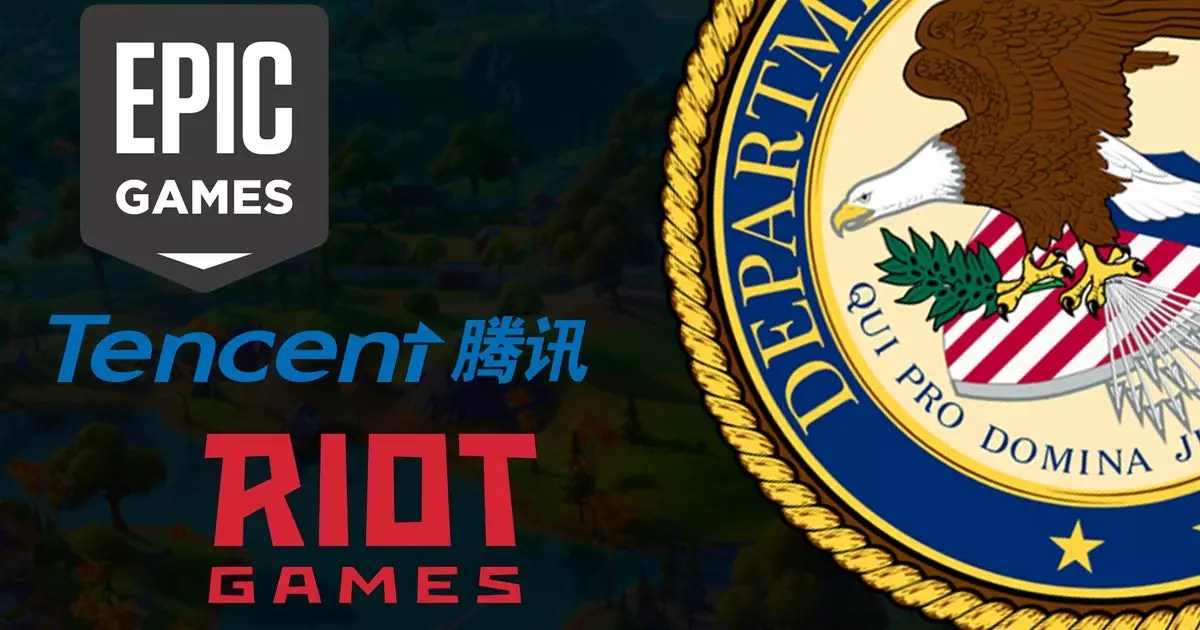The recent resignation of two key members of the Epic Games board has thrown light on the intricate relationship between corporate governance and legal compliance in the competitive landscape of the gaming industry. The U.S. Department of Justice (DoJ) has initiated an investigation into potential antitrust violations that have lead to this significant shakeup, highlighting the ongoing enforcement of laws designed to prevent monopolistic practices among companies with overlapping interests.
Ben Feder and David Wallerstein have both stepped down from their positions on the Epic Games Board, a move compelled by concerns raised during the DoJ’s investigation. These resignations are particularly notable given that both directors were aligned with Tencent, a major shareholder in Epic Games and owner of Riot Games. The U.S. government intervened under the Clayton Act, which forbids individuals from holding board positions in competing firms. The issue at hand reflects broader concerns about conflicts of interest in boardroom governance, particularly when substantial stakes are involved.
This situation offers a stark reminder of how intertwined relationships among corporations can lead to legal complications. For the entities involved, including Tencent, the ramifications are significant; they must navigate the complexities of ownership and influence in a manner that complies with antitrust legislation while also maintaining competitive integrity.
The DoJ’s concerns underscore a critical aspect of corporate management: the necessity for stringent adherence to antitrust laws. The rationale behind such regulations is straightforward: they aim to prevent any one entity from monopolizing a market, which can stifle competition, innovation, and consumer choice. The business landscape is littered with examples of instances where companies have faced repercussions for perceived or actual antitrust violations; the gaming industry is no stranger to such scrutiny.
Take, for instance, the historical lawsuits faced by Valve and the extensive investigation into Microsoft’s acquisition of Activision Blizzard. These cases illustrate the potential fallout and scrutiny that can arise when large companies attempt to consolidate their power, often leaving smaller competitors at a disadvantage. The scrutiny over Epic Games and Tencent reflects a concerted effort by regulatory bodies to ensure that competitiveness remains healthy across the industry.
The resignations of Feder and Wallerstein not only serve as an immediate compliance measure but also raise questions about the broader implications for corporate governance within the gaming sector. The precedent set by these events may compel other companies to reevaluate their governance structures and board compositions. Particularly, firms might consider implementing policies that emphasize transparency in their board appointments concerning potential conflicts of interest, especially when significant foreign investments are involved.
By resigning, Feder and Wallerstein have sought to minimize potential legal repercussions for both Epic and Tencent. However, their departures also highlight the precarious balance companies must maintain between robust partnerships and compliance with national laws. The expectation is that companies will act in accordance with regulations to protect their reputations, market positions, and, ultimately, their bottom line.
With Tencent agreeing to amend its shareholder agreement with Epic Games to prevent future boardroom appointments, the ramifications of this investigation will undoubtedly influence how similar corporate relationships are formed in the future. By restricting the ability of Tencent to exert influence in Epic’s decision-making processes, there is an anticipation that this could foster a more vigorous competitive environment in the gaming industry, leading to improved innovation and diverse offerings for consumers.
As companies continue to expand their global reach and partnerships, understanding the nuances of antitrust legislation becomes paramount. The complexities highlighted within Epic Games’ situation should prompt other entities within the sector to proactively assess their governance frameworks to ensure compliance, thus preventing future legal entanglements.
The resignations at Epic Games reflect not only a response to immediate legal scrutiny but also a critical examination of corporate governance in an increasingly interconnected world of business where competing interests must be meticulously managed. The landscape is changing, and the implications of these events will resonate across the gaming industry for years to come.


Leave a Reply